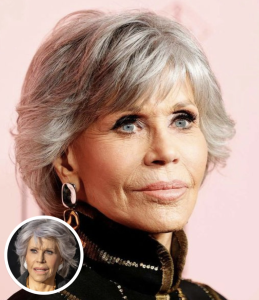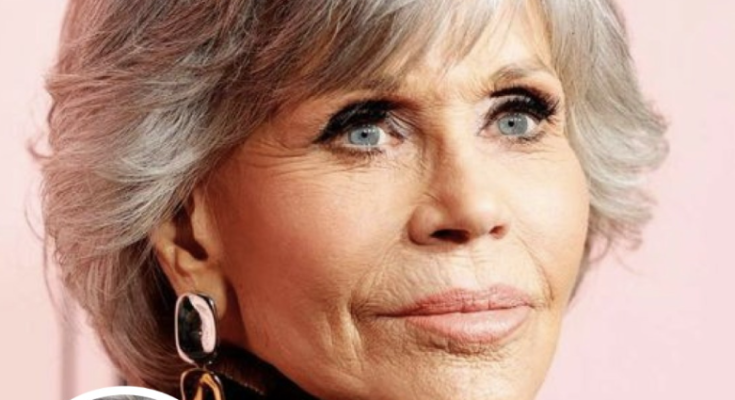Jane Fonda Says She’s Preparing to Die
At 87 years old, Jane Fonda is no stranger to bold transformations—from her trailblazing roles in Hollywood to her reinvention as a fitness icon and environmental activist. Yet, in Melbourne earlier this year, the screen legend turned heads once more—not with a new project, but with a revelation of a quieter kind. In an intimate moment during a wellness festival Q&A, Fonda opened up about preparing herself for the inevitable and tending to her most important relationships before it’s too late
Fonda spoke with clear-eyed honesty: she wants to die at home, surrounded by those she loves. In closing that circle, she has set her mind to heal old wounds and strengthen her bonds, particularly with her children. “I have to help my children forgive me,” she said, “otherwise I risk ending up with nobody.” It’s a reminder that love, forgiveness, and presence are what truly endure
Embracing Mortality with Grace
This is far from the first time Fonda has offered such unfiltered insight. Back in 2022, she revealed her cancer diagnosis—non-Hodgkin’s lymphoma—but treated it as another chapter, not a final one. “This is a very treatable cancer. Eighty percent of people survive,” she shared, expressing gratitude for quality healthcare and affirming her enduring commitment to activism even through chemotherapy
Her approach to aging is deeply pragmatic: she gave up alcohol, noting how “even one drink… would be at half-mast tomorrow,” because she understands she only has “so many tomorrows left.” As she put it, aging hasn’t slowed her mind or spirit—only her joints—and that doesn’t stop her, because “you can be really young at 85”
More Than Just a Physical Reality
Fonda has long spoken of “rehearsing for death”—not out of morbidity, but out of mindfulness. In a 2009 blog post she wrote about envisioning herself at 95, surrounded by loved ones, peaceful and able to say, “Everything”—a testament to living well so you can die well She sees it as a practice that frees us from fear and lets us live more fully today.
Her biggest fear, she’s said, is not dying—but dying with regrets (for example, estrangement or unresolved conflict). That makes preparation more than physical—it’s emotional and spiritual. It’s why she devotes herself to mending relationships while she still can, seeking forgiveness, and letting love flourish
Reflecting on Legacy and Love
Fonda’s reflections echo deeply human hopes: to exit life gently, not alone, remembered with love. She’s acutely aware that many people don’t get that opportunity. Which makes her efforts—to repair what can be repaired, to be present, to nurture meaningful connections—not just personal, but profoundly universal.
A user on Reddit captured that spirit beautifully by quoting Fonda as saying, “The climate fight is ‘what I’m going to do till I die,’” underscoring a legacy rooted in purpose beyond self
Looking Ahead with Clarity, Not Fear
So what are the themes threading through Fonda’s reflections on mortality?
-
Realism and readiness: She doesn’t shy from the reality of being closer to death—it simply sharpens her sense of what’s worth doing
-
Forgiveness and reconciliation: Her decision to mend ties with her children speaks to a deep desire not to leave unfinished emotional business behind
-
Gratitude and privilege: Her cancer journey has made her all the more aware of how fortunate she is to have health support, reminding us of the inequalities many face
-
Living with intention: Whether it’s exercising with resistance bands or foregoing alcohol to savor every morning, Fonda chooses daily clarity over escapist comfort
-
A third act of meaning: From her writing to her activism, Fonda views the later decades of life not as decline, but as an opportunity to compose a more intentional legacy
Final Thoughts
Jane Fonda’s reflections on preparing to die are not morbid—rather, they’re an invitation. An invitation to live fully, with forgiveness, purpose, and love. To do the hard work now so our final days aren’t filled with regret. To acknowledge mortality not as an end, but as a teacher. And in that clarity, to choose how we want to be remembered.
In her words—and in her action—she gives us a road map for the third act: one where we show up, mean what we say, love deeply, and leave fewer things unsaid.

